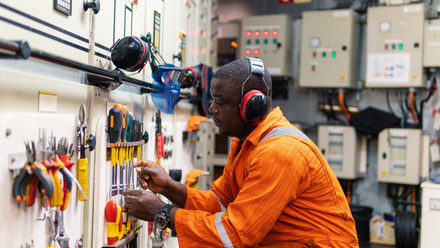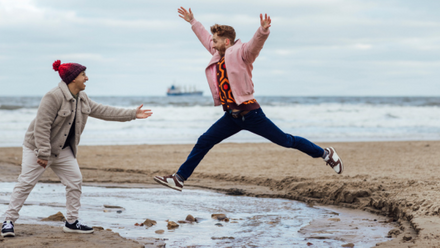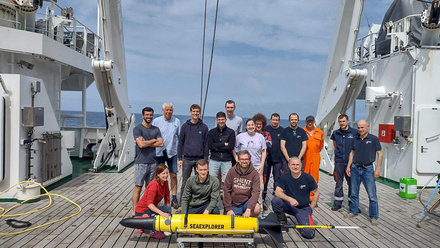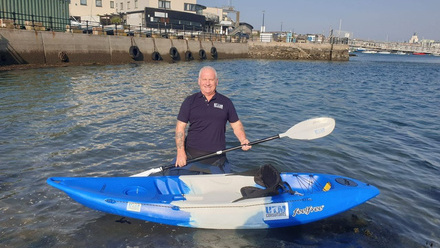A little less PowerPoint, a little more conversation
Martin Dunne, Chair of IMarEST’s Dublin branch, shares how they create vibrant, social meetings for their members.
How did you get involved in the IMarEST Dublin branch?
I started going to sea when I was 16 years of age. I had no family background in maritime or anything like that, and I think after six months I thought this wasn’t the life for me. But I stuck it out, and now I’ve spent nearly 40 years in the industry.
I joined IMarEST about 20 or 25 years ago. I used to attend meetings at the Dublin branch and got to know a lot of people there. Then, I got involved in the branch committee and eventually became Chair.
What happens at these meetings?
At the Dublin branch, a lot of our meetings are both informative and social occasions. It’s not just someone giving us a [PowerPoint] presentation, and that’s the end. Before and after, there are chats and discussions. Our meetings are very open, and we welcome anybody involved in the maritime area – the Master Mariners, the Irish coastguard, [or] the scientific community.
We try to hold the meetings in informal locations, too. One of our locations is a floating restaurant and bar on the river Liffey, which has an interesting history. It was built in Dublin to tender passengers and their luggage to and from Transatlantic liners from the Port of Cobh in southern Ireland before becoming a training vessel for the National Maritime College and eventually a restaurant.
We also like to make the meetings a bit different. Last year, we had a company bring down the autonomous craft they use to survey the seabed, so part of the meeting was held inside, part of the meeting was held outside, and people could walk around and see and interact with the craft.
We really want these meetings to be something that people look forward to, not the sort of thing where they feel, “I’ve just finished work, and I have to go to this meeting where somebody will be blabbing on for an hour and then it's over, and off I go home.”
How has the membership changed over the years?
We used to be a group of old sea dogs that worked on ships, but it's really diversified. We’ve got new members on the committee, and they're young, which is really great. We’re also seeing [people from] more diverse backgrounds. One of our committee members is a young guy who lives in Northern Ireland. His background is actually in aviation, but he has an interest in the maritime side of things, so he comes down to our meetings.
We’re seeing more involvement from the scientific community, which is really encouraging. One group that we would like to try to bring in more is the fishing community. It would be great to get their input.
What have you got planned?
I don’t want to say too much just yet, but there was a major environmental disaster, and I’m looking at having somebody with intimate knowledge of it to give a presentation. One of our members asked about getting someone in from the wind farm community, so we’re looking at that, too.
We’re also looking at doing more visits. One of the places we’re hoping to visit is an incinerator in Dublin, which might not sound very attractive, but it will be good to see how they deal with waste, the challenges, and the ups and downs. We’re also hoping to visit a hydroelectric power station and take a roadshow out to the west of Ireland. The Dublin branch covers quite a large geographical area so it will be good to go over to our members who live over that way.
Tell us what you think about this article by joining the discussion on IMarEST Connect.
If you want to learn more about IMarEST’s Dublin branch and get involved, you can join now.
Main image: view of the river Liffey, Dublin; credit: Shutterstock.
Newsletter image: members of the Dublin branch; credit: IMarEST.





